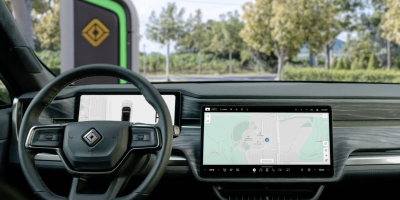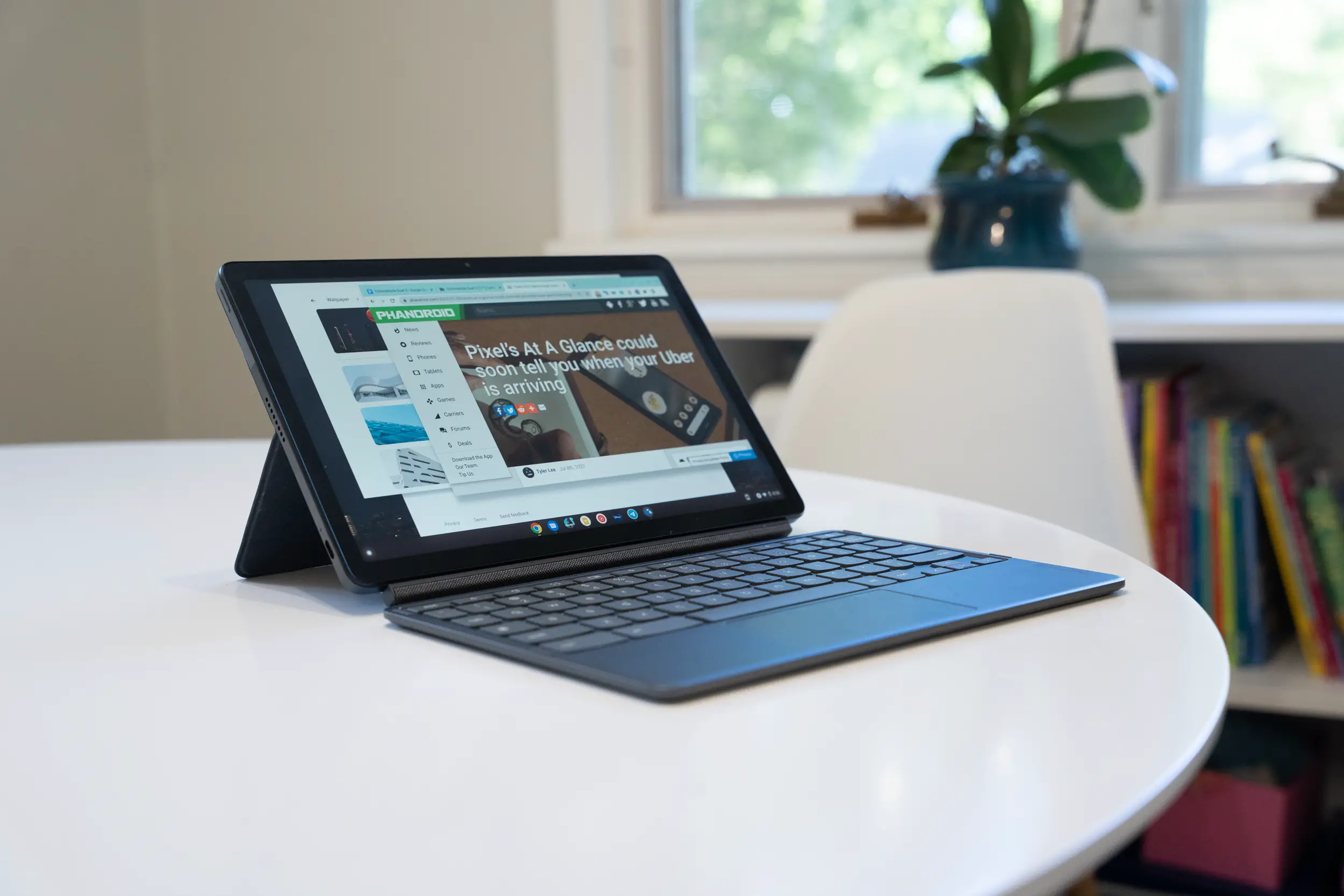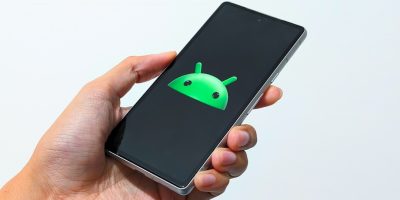What type of awesome mobile integration will Android allow? Dreaming is a wonderful thing, and a recent article by Read Write Web had a pretty vivid vision of what open source mobile platforms would mean in the near future.
While they wrote their article in anticipation of the iPhone SDK launch, we’d like to thank them for the tremendous idea. They’ve got a tremendous understanding of what open source mobile software means for consumers… we’re just confident it will be better on Android.
1) Reality Tagging. As their article explains, “Reality tagging will be like a distributed Google Earth, but for pictures.” Ummm… is explanation needed? That word “Google” kind of explains why Google Android might be best at this.
3) People Tagging. The article states, “You can already take a picture and assign it to a contact. It is just a matter of time before these pictures will available to a search engine.” That search engine being Google. How long is it before you can snap a picture of someone with your mobile phone and depending on face recognition and current location, it narrows down who that person could be?
3) Reality Recognition. Does this sound familiar, “Imagine going on a hike and coming across a tree that you have not seen before. You will point iPhone (more likely android phone) at the tree and instantly a Wikipedia page about it will load.” The best implementation of this will yield the most relevant results on a consistent basis. Google’s biggest asset is arguably their algorithm, which we think should help in the ultimate reality recognition software.
4) Physical Social Networks. So you can, “walk into a restaurant, open up your iPhone and see a list of your friends who have been to the place. You can flip through their comments and ratings, etc…” No different than reality tagging and people tagging but with a list of “friends” so you can filter opinions/comments based on what you actually want to read.
5) Personalized Travel Guides. “Now imagine having personalized tours of any location of the world available. With the touch of a button, information about your current location will appear in your hand.” There are already several companies creating localized “tour” podcasts but an OS mobile platform will take it to a new extreme. Free tours. Any time. Any place. From a 10 second description of where you are standing to a 30 minute mobile guided walk.
6) Digital and Physical Treasure Hunt. Ever see the movie Rat Race? Watch it. Then think of what you could do with an Android Phone. Once your phone enters a certain physical space via GPS you get the next clue, etc…
7) Distributed Mobile Games. Play 3D games on your phone against other players around the world in real time. There is a reason the rumored “play station phone” is so highly anticipated. Gaming is about to reach a new level. When you combine the concepts of #6 and #7 into one “game” one could come up with some truly creative, unique and revolutionary forms of entertainment.
8) Credit Card Software. You can pay for everything with your phone. Order a pizza and have it delivered. Scan it at the grocery check out. Easy shopping made… well… easier.
9) The Demise of Business Cards. We hate to tell you… but we have to SEVERELY disagree with this notion. That’s would have been like saying websites will make magazines and newspapers extinct. While print industries are suffering a bit… they are not going anywhere anytime soon. And neither are business cards. Sometimes it’s the simple things that linger the longest.
10) Medical Records as Software. Yeah, we’re kind of doubting this one too. There is too much personal information at stake and no company that wants to be liable for losing that information or having it exposed to others. Our healthcare system has a LOT of improving to do before this will even come CLOSE to reality. Within the next decade? Sure. Within the next couple years? No way.
Oh… and we might remind you about Google’s little initiative called Google Health that has already been hard at work towards achieving the above? Sorry iPhone fanboys… you’re way behind.
11) Browse in Person, Shop Online. Things online are cheaper. So you’re in Barnes & Noble, see a book you like, scan it and buy it on Amazon.com for half the price. Wow… can you say, “that sucks” for brick and mortar stores? It could take comparison shopping to a new extreme. Scan the product, see who will offer you the best deal and bingo bango – you buy it. Those brick and mortar guys are such suckers…
12) Locational Coupons and Shopping. You’re walking past a store and BEEP BEEP -20% off everything if you shop here today! Type into your search, “black sweater” and instantly you’ll see the closest places where you can try on a black sweater. The possibilities brought to the shopping world will be unparalleled. But… this will take some time to catch on – the retailers will have to embrace it and that won’t happen on a mass scale until MOST people have android phones. All in good time…
Again, these 12 ideas were brought to you by Read Write Web and you can read the full article here. Just don’t get sucked into the iPhone propaganda… Android will do everything better. We’d bet our blog on it.











One of my greatest fears is this: If you make something so powerful opensource, then what happens to the end-user? Imagine if Google search algorithm was opensource how skewed hackers would make the search results generated. Does Google have the consumer’s interest at heart in this one? I really want to know.
Meh, laptops are a bigger threat than any android phone. Being a developer myself i am very excited to see what doors this OS will open.
Osita – When something is “open source,” it just means that the way it works is public knowledge. It doesn’t mean everyone can modify it. Firefox is a great browser which any programmer can suggest improvements for. Sure, hackers can see its weaknesses, but so can “good guys” – and there are more good guys than bad, so they generally get fixed pretty fast. By contrast, the way that Internet Explorer works is a secret. If one hacker finds a weakness, he may be the only person who spots it, leaving the good guys to wonder what’s happening while he exploits it. Only Microsoft can defend IE; any programmer can help defend Firefox.
Some of the possibilities in this article are interesting, but here’s a scenario I’m more excited about seeing:
Contacts: Every contact I enter in my phone or email account is synced to both places – names, addresses, birthdays, notes, etc. If I lose my phone, I never lose this information. Contacts are grouped in tabs, like the ones in your browser – friends, business, family, etc.
Voicemail: Callers should hear a custom message depending on who they are: business contacts hear me being professional, friends hear me being silly, etc. When I have messages, I should see an inbox listing the messages and be able to pick and choose what I listen to.
Access control: I give out one phone number which can ring to any/all of my phones, and I chose who can reach me where and when. If I go to bed, all callers get a message saying “I’m asleep;” friends and family have the option to wake me in an emergency. New callers get screened and I’m prompted to classify them as business, friends, etc. Annoying callers get marked “Spam” and are blocked.
Customization: I can set shortcuts for any function in my phone and get to it in a couple of key presses. Voice memo, calendar, silent mode, calculator – whatever is useful to me.
To me, these are all fairly basic things that phones should be able to do. The phone is PRIMARILY a communications tool. Sure, it can be a camera, personal shopper, toaster, etc, but its primary job is to let me get in touch with people and let people get in touch with me with minimal hassle. And it should go without saying that every phone should have excellent call clarity, speakerphone function, etc before you even start trying to add a video-enabled social reality tagging treasure hunt shopping experience.
If we start adding extras, my first choice would be:
Navigation: My phone should have GPS and give turn-by-turn directions from Google Maps. All map information for a trip should be cached at the start in case I lose service along the way. The physical addresses of all my contacts are easy to plug in for directions. (This seems like a gimmie, since GPS signals are free and most phone can access the web. Why should you pay a monthly fee for navigation services?)
@ Nathan
I like your ideas better than the articles. I don’t know why basic features like these are missing from phones.
talk about payment. Receiving and sending giftcards, texting and shopping by just using your cell phone number and pin is so easy. Even if there was a shopping feature, credit cards are expensive (fees) and downloads for people or dealing with phone apps. aren’t smooth. I use Mobibucks at coffee shops in Mtn View , like Dana’s and it’s the next big wave
@Nathan
Sold!
“4) Physical Social Networks. So you can, “walk into a restaurant, open up your iPhone and see”
Did i read iPhone??
Nathan, you should try out GrandCentral.com, which was recently acquired by Google. It offers most of the services you asked for, for free (at least during the beta).
ShopSavvy and some of the other “shopping” programs on the Market do items #11 and #12.
I use ShopSavvy personally, and I’ve used it to scan a UPC code in a store, and compare it’s price between b&m Target, Walmar,t and against Amazon, etc online prices.
It grabs b&m store prices listed online based on what other stores are around me, and tells me their posted prices as well as popular online store prices, which I then compare with what I’m standing in front of.
Sadly, I don’t have all these listed Adroid apps here yet. I still have to upgrade my version to 2.1. ):